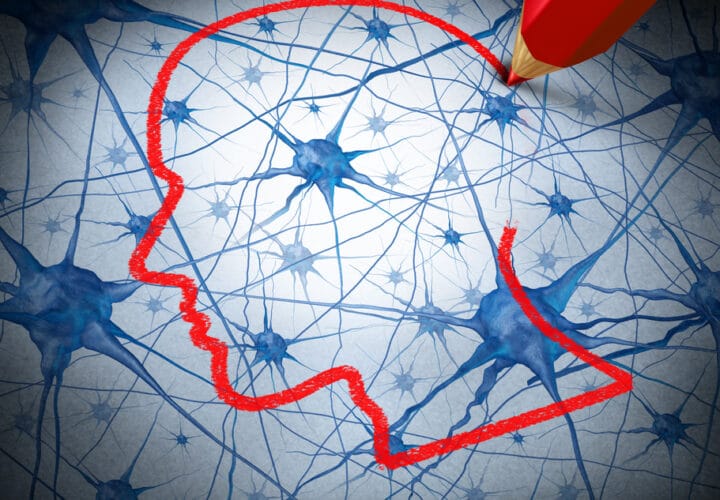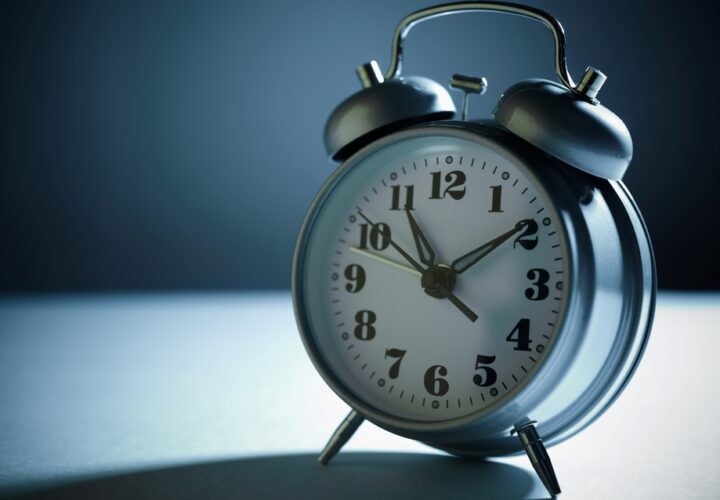Research into dementia prevention has looked into a variety of possibilities, including diet and exercise. But researchers are also looking at how sleep affects the brain when it comes to neurodegenerative diseases like Alzheimer’s.
Being Patient spoke with Dr. Laura Lewis, a sleep researcher and assistant professor of biomedical engineering at Boston University, about her recent study on brain fluid during sleep. Her research may lead to further studies into the relationship between sleep and dementia progression.
Being Patient: You’ve now done several studies on sleep, so talk us through some of your findings.
Laura Lewis: I think our most recent study is maybe the most relevant for this community. We wanted to understand what is happening to the fluids in our brain during sleep. The reason that we wanted to know this is that there’s been a lot of fascinating previous work showing that sleep is really critical for brain health, and that disrupted sleep seems to be associated with neurodegenerative diseases.
Research groups have also shown that sleep is related to levels of toxic proteins, such as amyloid beta, in the brain. We wanted to understand why it might be that this is such an unusual state for these kinds of toxins. So, our study used brain imaging to look at cerebrospinal fluid in the brain during sleep, which is a liquid that envelops the brain and cushions it.
It’s important for things like waste clearance from the brain. So we ended up having people coming to the lab at midnight or so and getting brain scans while they were sleeping. And when people would fall asleep, we would see these large waves of fluid that seemed to kind of wash through the brain, which was really fascinating to us.
We also went on to image different aspects of brain function and came to realize that a specific pattern of electrical activity that happens in the brain during sleep is followed by a wave of blood oxygenation and then the wave of fluid, so it seems that all of these things are coupled together. So we’re very intrigued to see what these waves of fluid might actually mean and the consequences for brain health.
Being Patient: As I understand it, quality of sleep determines how beneficial it is for our brains. And what you’re trying to determine is whether sleep is a cleansing process, and if so, if there is a link between your quality of sleep and your risk for dementia?
Laura Lewis: I think the way that I would think of it is that these are things happening at different stages. In terms of the link with dementia, I think that it is pretty well established now that sleep really is altered in patients with dementia, and that the actual aspects of sleep that are altered are the same ones we saw that are associated with these flow waves in our study.
Our study was entirely healthy young adults, so we wanted to understand what’s happening normally in typical brains of those in their 20s and 30s. So our study would predict that if you did the same brain imaging in patients with dementia, you would see less of that flow. But that’s exactly what we want to do now in a follow-up study is check whether that prediction is true.
Being Patient: So when you looked at these participants, is there a way to say that sleep is eliminating X amount of toxins in the brain?
Laura Lewis: From this study no. We didn’t measure toxins or protein clearance directly in this study. What we are able to study is how rapidly and how often we see these flow waves. And so I think that there’s a sort of critical next study to be done where you measure these waves and then you also directly measure whatever kind of waste products you would want to track at the same time.
Maybe that’s amyloid, maybe that’s something else. And I think that it will be critical to have that next study to actually start to answer that question.
Stages of Sleep
Being Patient: What kind of sleep should we be getting to achieve good brain health?
Laura Lewis: That’s actually kind of a tough question, because as a sleep professional I think all parts of sleep are important. I’m not a medical doctor, so I can’t give clinical advice on how to sleep, but there are many different stages of sleep and each of them seem to be important in a different way, so it’s not necessarily that there’s one of them that’s the most important, but that each serves a different purpose within the brain.
Being Patient: Why focus on the intermediate stage of sleep for your study?
Laura Lewis: So it’s reflective of just how challenging it is to do these experiments. So the reason, in part, why people haven’t done many of these studies is because it’s very difficult to image the brain with all of these different things while someone is also sleeping.
It takes a lot of help from the participant, because they have all of this different equipment and it kind of takes these advanced techniques that we’re using, and they also have to sleep at the same time.
And at the end of the day there’s this very kind of low-tech limitation that people find it hard to sleep for a long time, and so we were able to do this study and catch these kinds of early phases of sleep, but we weren’t able to able to scan someone over the full night and catch the later stages of sleep.
Being Patient: Do we know what the best stages of sleep to get are?
Laura Lewis: So keep in mind for the use of trackers, the way we define sleep is purely based on electrical activity in the brain. So the trackers are doing the best that they can, but they’re usually using your motion or your heart rate, so they can’t really tell you each little bit of every stage that you have.
For non-REM sleep, usually you spend about 70 percent of it in the intermediate stage, and about 15 percent of it in light sleep and 15 percent in deep sleep. And then REM you do later in the night, so that’s usually only in the second half of the night that you’re asleep. Everybody’s different too, you know sleep is very individualized.
There are lucky people who only need a little bit of sleep, and there are others who need a lot of it, and people have different amounts of these rhythms. We’re still learning exactly how each of these dynamics relates to that individual’s brain function.
Potential for Future Sleep Studies
Being Patient: So you’ve said that you’re going to be focusing a bit more on dementia in your next study, can you tell us a bit more about the scope of that study?
Laura Lewis: So firstly, we want to understand how these waves are affected. How are they affected in healthy brains, because a lot of things change in the brain through aging that aren’t related to dementia, so it’s important to study not just people with dementia but also people who are of a certain age and are aging healthy, and to understand what the difference is there.
So that’s going to be a critical piece of it, and then the other is that we’d like to develop a measure of what you’re actually interested in, of some measure of the protein in the brain and not just measuring the fluid flow, because it’s going to be very important to know whether and how those two things are related.
Being Patient: Who are you hoping to recruit for this next study, and what are you hoping to get out of it?
Laura Lewis: I’m hoping to recruit 60 people, and I’d really like to know whether and how these waves of fluid are affected in healthy aging, or in people who are at risk for dementia, or who are perhaps moving towards developing it.
And if we could understand where they’re coming from and potentially their functional importance, then I would hope that we could start to generate some ideas about how to modulate these things, and to think about how we could potentially help in the longer term and to address these problems.



